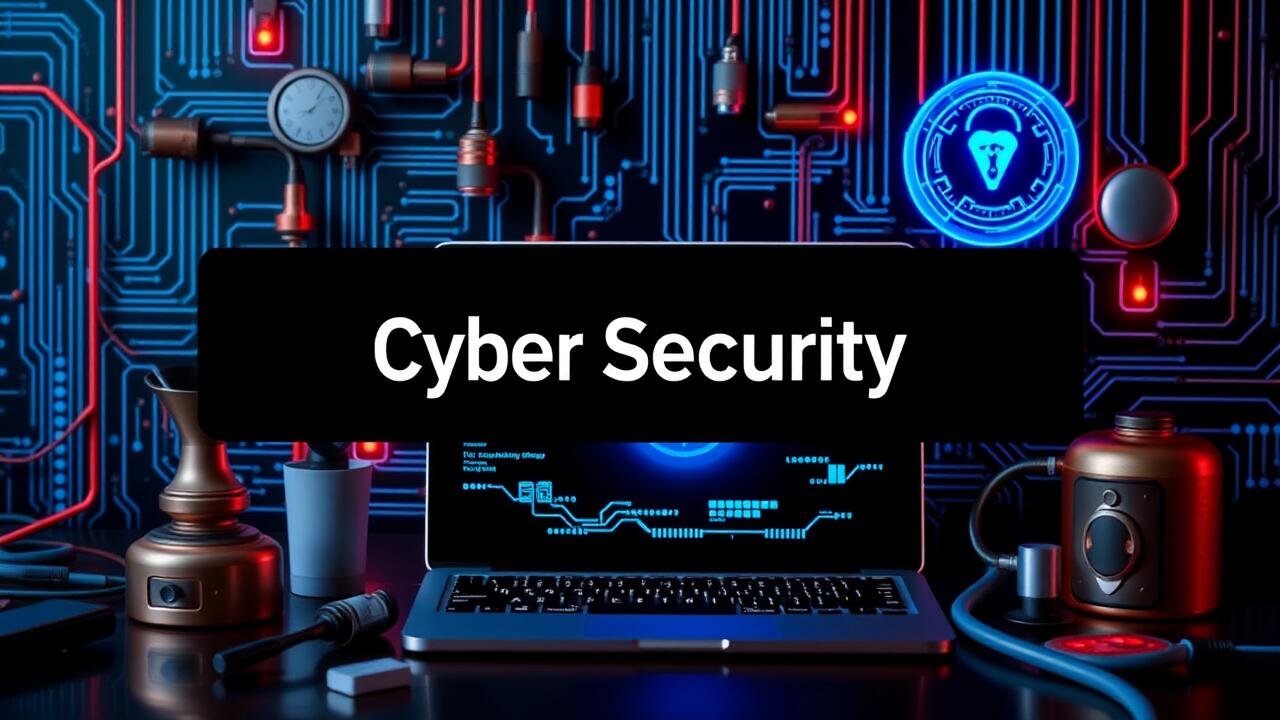Table Of Contents
Understanding Why Privacy Compliance is Essential for Cybersecurity
Key Takeaways
- Significance of privacy adherence for digital security and the necessity of safeguarding personal information in cyber defense.
- Major privacy regulations influencing cybersecurity methods.
- Contribution of privacy adherence in protecting sensitive information.
- Obstacles in attaining privacy adherence.
Why Privacy Compliance Is Essential For Cybersecurity | The Importance of Privacy Protection in Cybersecurity
Ensuring compliance with privacy laws is crucial for cybersecurity as it directly addresses various privacy concerns that organizations face today. Organizations must navigate complex regulations, such as the Online Privacy Protection Act and other data privacy laws, which safeguard customer privacy and uphold the right to privacy. Non-compliance can lead to severe privacy violations, resulting in reputational damage and significant financial penalties. A strong focus on privacy protection not only mitigates the risk of a security breach but also fosters trust among consumers, who increasingly prioritize their privacy rights. Understanding why privacy compliance is essential for cybersecurity helps organizations bolster their defenses against potential threats while respecting the individual’s rights in the digital age.
| Privacy Regulation | Key Focus Areas | Potential Consequences of Non-Compliance |
|---|---|---|
| GDPR (General Data Protection Regulation) | Data protection, user consent, data breach notifications | Fines up to €20 million or 4% of global turnover |
| CCPA (California Consumer Privacy Act) | Consumer rights, data access, opt-out options | Fines of up to $7,500 per violation |
| HIPAA (Health Insurance Portability and Accountability Act) | Patient privacy, secure handling of health data | Civil and criminal penalties, including fines and imprisonment |
| PECR (Privacy and Electronic Communications Regulations) | Electronic communications privacy, marketing consent | Fines for unsolicited marketing and breaches of privacy |
Why Privacy Compliance is Essential for Cybersecurity | Understanding Privacy Laws and Their Impact
Understanding privacy laws is vital for organizations striving to enhance their cybersecurity frameworks. The California Consumer Privacy Act (CCPA) and the California Privacy Rights Act exemplify regulations that mandate strict adherence to consumer privacy. These laws require businesses to conduct regular security audits and embrace robust information security measures, thereby reducing the risk of security breaches. With cybercriminals increasingly exploiting vulnerabilities, compliance is crucial not only for safeguarding personal information but also for building consumer trust in a time when data security is a top priority.
The Children’s Online Privacy Protection Act (COPPA) highlights the importance of protecting minors’ data in an increasingly digital environment. Compliance with such regulations helps organizations mitigate potential cyberattacks and legal repercussions that can arise from data mismanagement. Organizations that prioritize privacy compliance as part of their IT security strategy can better defend against cybercrime and maintain a reputation for responsible data handling. Understanding these laws clarifies Why Privacy Compliance is Essential for Cybersecurity, ensuring that organizations proactively address threats to consumer privacy and personal data protection.
The Relationship Between Privacy Compliance and Data Security
Privacy compliance plays a crucial role in establishing robust security controls that protect sensitive personal information. Organizations that prioritize regulatory compliance not only meet legal obligations but also fortify their defenses against cyber threats. By implementing comprehensive strategies that adhere to privacy laws, companies enhance their database security, ensuring the confidentiality, integrity, and availability of critical data. This proactive approach significantly mitigates the risk of data breaches that can arise from cyberattacks and vulnerabilities, showcasing why privacy compliance is essential for cybersecurity.
The interdependence between privacy compliance and data security cannot be overstated. Effective authentications and strict access controls help safeguard against unauthorized access and potential data breaches. Cyber-attacks often exploit weaknesses in security measures, making it vital for organizations to align their privacy regulations with their cybersecurity strategies. By doing so, they create a resilient framework that not only protects sensitive information but also fosters trust with stakeholders, making privacy compliance a cornerstone of a sound cybersecurity posture.
Key Privacy Laws Shaping Cybersecurity Practices
Understanding the landscape of privacy laws is critical in addressing why privacy compliance is essential for cybersecurity. Compliance with regulations like GDPR and CCPA helps organizations implement effective cybersecurity methods, ensuring strong data privacy protocols are in place. These laws dictate the measures necessary for cloud security, such as data encryption and strong authentication practices to protect sensitive information. By becoming a privacy-compliant organization, businesses can significantly mitigate cybersecurity risks and safeguard against potential breaches. Annual cybersecurity audits serve as a tool to reinforce compliance, helping organizations identify vulnerabilities and enhance their cybersecurity posture. Ultimately, adhering to privacy regulations not only fortifies data protection but also underscores the importance of why privacy compliance is essential for cybersecurity in today’s digital environment.
Overview of Major Privacy Regulations
The landscape of data protection compliance is shaped by numerous major privacy regulations that mandate organizations to uphold stringent data privacy standards. Regulations such as the General Data Protection Regulation (GDPR) and the California Consumer Privacy Act (CCPA) emphasize the significance of robust cybersecurity measures to safeguard personal information. These laws establish a framework for maintaining requisite data privacy in a privacy-conscious world. Compliance with these regulations is not merely a legal obligation; it reflects a commitment to outstanding data privacy practices that enhance consumer trust and drive business integrity.
Understanding the implications of these major data privacy regulations is crucial for organizations aiming to achieve comprehensive data privacy. Each regulation presents unique data privacy requirements that necessitate rigorous compliance efforts. As organizations navigate these rules, they must adopt a unified data privacy approach that integrates internal data privacy controls with operational processes. This commitment to robust data privacy not only fortifies data security but also addresses the ever-demanding data privacy expectations of consumers. Embracing these regulations lays the groundwork for effective cyber defense strategies essential for today’s digital landscape.
Implications of NonCompliance with Privacy Laws
The failure to comply with privacy laws can lead to severe repercussions for organizations. A personal data breach can result in significant financial penalties, especially under regulations like GDPR, which emphasizes data protection standards. Non-compliance not only jeopardizes data security provisions but also increases security risks that can undermine an organization’s reputation. Companies must acknowledge that maintaining certain security standards is essential for protecting sensitive information. This adherence is crucial in demonstrating accountability and commitment to data security, thereby fostering trust with clients.
Organizations that neglect the necessary security measures risk exposing their data to breaches and unauthorized access. Key compliance with privacy regulations serves as a framework to prevent data breaches and ensure that personal data is secure. Relevant data protection laws mandate that businesses implement robust data security measures, which are vital for safeguarding customer information. Not adhering to these standards not only results in financial consequences but can also lead to legal actions and heightened scrutiny from regulatory bodies. Understanding why privacy compliance is essential for cybersecurity is fundamental for preventing adverse outcomes.
The Role of Privacy Compliance in Safeguarding Data
Privacy compliance serves as a cornerstone in safeguarding sensitive data and operational integrity within organizations. Understanding Why Privacy Compliance is Essential for Cybersecurity is vital because data protection matters significantly in today’s digital landscape. Organizations must prioritize the implementation of effective data breach prevention strategies alongside appropriate security measures to ensure compliance with data protection laws such as the California Consumer Privacy Act. These regulations outline data protection responsibilities, compelling businesses to adopt reasonable security measures and robust systems security protocols. By aligning their security strategies with data compliance requirements, companies can mitigate risks and enhance their overall security posture, creating a secure environment that fosters trust among stakeholders.
How Privacy Compliance Enhances Cyber Defense Strategies
Privacy compliance is essential for cybersecurity as it lays the groundwork for a secure data foundation. Organizations that adhere to confidentiality principles and implement a comprehensive compliance system are better equipped to identify and mitigate security flaws. By following regulations set forth by data protection authorities, these organizations can develop data protection strategies that include suitable security measures and intrusion prevention systems. As cyber-threat technology evolves, compliance becomes even more critical in ensuring comprehensive data protection and an effective data breach response.
Establishing a strong privacy compliance framework enhances an organization’s overall cyber defense strategies. Data protection refers not only to safeguarding sensitive information but also to being proactive in managing risks associated with data breaches. By leveraging data protection services and refining their data protection strategies, companies can create a robust approach to cybersecurity. This proactive stance helps organizations remain resilient against potential cyber threats and fosters trust with customers, illustrating why privacy compliance is essential for cybersecurity.
Case Studies: Success Stories of Effective Privacy Compliance
Successful case studies demonstrate Why Privacy Compliance is Essential for Cybersecurity, highlighting organizations that have effectively navigated compliance laws while protecting sensitive client information. One company implemented robust data protection solutions that aligned with compliance requirements, elevating their security policies to ensure secure processing of data. Their commitment to document security and compliance efforts resulted in a secure network that significantly reduced the risk of potential data breaches. By leveraging CCPA compliance software, they created a security box around their sensitive data, reinforcing their data protection impact.
Another organization showcased the importance of data protection methods in their privacy compliance journey. By embedding compliance requirements into their operational framework, they successfully addressed critical security challenges. Their proactive approach to privacy not only protected sensitive client information but also instilled trust among their stakeholders. The seamless integration of data protection help into their daily operations allowed them to foster a culture of security awareness, ultimately contributing to a strong defense against cyber threats. Their experience illustrates that maintaining continuous compliance is key to thriving in an increasingly complex cybersecurity landscape.
- – Importance of implementing robust data protection solutions for compliance
- – Alignment of security policies with compliance requirements to enhance data protection
- – Benefits of utilizing CCPA compliance software for sensitive data security
- – Embedding compliance into operational frameworks to tackle security challenges effectively
- – Cultivating a culture of security awareness among employees and stakeholders
- – Continuous compliance as a critical component in the fight against cyber threats
- – Building trust with clients through proactive privacy measures and effective compliance strategies
Challenges in Achieving Privacy Compliance
Achieving privacy compliance can be a daunting task for organizations, particularly given the ever-evolving landscape of regulations and the pressing need for robust cybersecurity measures. Total data breaches continue to rise, highlighting the potential security issues organizations face in managing personal data. Compliance with regulations like GDPR necessitates new compliance measures that integrate strong authentication mechanisms and ensure cloud database security. Organizations often grapple with the nuances of personal data rules, which can lead to partial compliance and expose them to regulation non-compliance penalties. Effective breach response protocols and timely data breach notification are critical for safeguarding personal data rights, yet many find it challenging to implement these strategies fully. To address these security problems, businesses might consider leveraging gdpr compliance automation to streamline processes and enhance data storage security, ensuring they keep pace with the demands of modern cybersecurity.
Common Obstacles Organizations Face
Organizations often struggle with the complexities of compliance management, particularly when facing key regulations like GDPR compliance regulations. Many underestimate the resources required to implement robust encryption and other safeguards necessary to protect sensitive health information. A single data breach can lead to unauthorized access and significant consequences, urging businesses to recognize Why Privacy Compliance is Essential for Cybersecurity. Without a thorough understanding of compliance mandates, organizations may overlook the need to assess security measures meticulously, placing them at risk of potential security threats.
The challenge of integrating privacy compliance into existing security frameworks often leads to gaps in management compliance. Companies must make efforts to develop a security hub that encompasses in-built data protection while ensuring that their data protection strategies align with their operational models. For effective compliance, businesses need to look beyond compliance checklists and invest in solid data security practices. Overcoming these obstacles is crucial in fostering a culture of security awareness and resilience against breaches that can jeopardize organizational integrity.
Strategies for Overcoming Compliance Challenges
Establishing a comprehensive compliance program is crucial for addressing the challenges of privacy compliance. Organizations can implement a compliance checklist that includes data access governance and compliance-related tasks. This can help security professionals identify hidden data risks and ensure necessary precautions are taken to mitigate breaches or intrusions. Utilizing effective CCPA compliance solutions also plays a significant role in developing robust security measures. Generating security reports regularly allows businesses to assess their progress in compliance efforts, ensuring they are on track to meet required standards.
Implementing new security measures is essential to create a culture of data ethics within an organization. Training employees on safe online behavior promotes awareness and accountability, reducing the likelihood of non-compliance. Compliance plans should outline clear strategies for overcoming obstacles in privacy regulations, while regular updates can enhance understanding of evolving legal requirements. By integrating these strategies, organizations reinforce Why Privacy Compliance is Essential for Cybersecurity and strengthen their overall defense against potential security threats.
Conclusion
Understanding Why Privacy Compliance is Essential for Cybersecurity is critical in today’s data-driven landscape. Organizations must implement effective vulnerability scanning to identify potential breaches before they escalate. Compliance with regulations like CCPA helps safeguard sensitive information, such as social security numbers, while establishing robust compliance departments ensures adherence to multiple data protection standards. Adopting safe practices and partnering with third-party security experts can significantly mitigate data risks. Organizations can also foster a culture of compliance learn where staff is educated about privacy laws and their implications. This proactive approach fortifies cybersecurity measures and ultimately enhances overall data protection strategies.
FAQS
Why is addressing privacy issues crucial for effective cybersecurity compliance in today’s digital landscape?
Addressing privacy issues is crucial for effective cybersecurity compliance as it helps in preventing data breaches and ensuring data confidentiality. With the rising concerns over personal information protection and electronic documents act, organizations must consider compliance with data protection regulations. Agencies like the California Privacy Protection Agency set data security standards that, when followed, can provide rigorous data privacy. A proactive data protection strategy not only safeguards data but also addresses significant data privacy concerns, ultimately leading to a more secure cyber environment. Data security refers to the measures taken to protect sensitive information, reinforcing the importance of a well-defined cybersecurity compliance protocol.
How does effective data privacy play a role in preventing data breaches and ensuring overall cybersecurity compliance?
Effective data privacy is essential as it protects sensitive information from cyber attacks, aligning with various compliances such as GDP
How can organizations ensure that cybersecurity matters are effectively addressed through appropriate data privacy practices?
Organizations can ensure that cybersecurity matters are effectively addressed by implementing appropriate data privacy protocols that align with gdpr-focused data privacy regulations. This not only protects data from breaches but also ensures that data remains secure. By regularly updating data breach response plans and employing physical security safeguards, organizations can enhance their overall data protection efforts. Additionally, utilizing a security hub to generate security reports can help monitor compliance and strengthen data-protection initiatives.
How does GDPR data privacy impact the measures organizations take to prevent data breaches and keep data secure?
GDPR data privacy plays a critical role in helping organizations implement data protection measures that prevent data breaches. By adhering to GDPR regulations, businesses enhance their data security frameworks and create a robust security hub that not only complies with legal standards but also effectively protects sensitive information. Additionally, organizations must regularly update data breach strategies to remain vigilant against emerging threats and ensure continued compliance with data protection standards.
How does implementing a strong data protection policy prevent data breaches and ensure that sensitive information remains secure in a security hub?
Implementing a strong data protection policy is fundamental in preventing data breaches and ensuring that all sensitive information remains secure. By focusing on data protection, organizations create a security hub that not only safeguards data but also builds a robust framework to mitigate risks associated with unauthorized access and potential breaches. This helps in establishing trust and compliance in an increasingly complex digital environment.
How can a robust data protection strategy in a security hub prevent data breaches and keep data secure?
A robust data protection strategy is essential in a security hub because it implements various measures that prevent data breaches and ensure that all sensitive information remains data secure. By focusing on strong encryption, access control, and regular security audits, organizations can significantly enhance their data protection, thus fostering a secure environment.
How does a well-structured data protection strategy within a security hub prevent data breaches effectively?
A well-structured data protection strategy within a security hub is crucial as it prevents data breaches by implementing rigorous security measures. This strategy ensures that sensitive information remains secure while fostering a culture of compliance and data protection, which ultimately enhances the overall integrity of the security hub.
What role does data protection play in the context of a security hub?
Effective data protection is essential in a security hub, as it ensures sensitive information isn’t compromised. By establishing strong data protection protocols, organizations can significantly reduce the risk of breaches and enhance the overall integrity of their security hub.
What are the implications of a security hub on data protection practices in organizations?
A security hub can significantly enhance data protection practices by centralizing security measures and ensuring that sensitive information is well-managed. When data protection isn’t effectively implemented within this security hub, organizations expose themselves to higher risks of data breaches and potential threats. Thus, it is essential to maintain strong data protection protocols in tandem with the functions of a security hub.
How can organizations leverage a security hub to enhance their data protection strategies?
Organizations can leverage a security hub to enhance their data protection strategies by implementing centralized protocols and frameworks that enhance overall security. A security hub streamlines monitoring and response efforts, allowing for better management of sensitive data, ultimately reinforcing data protection measures within the organization.




